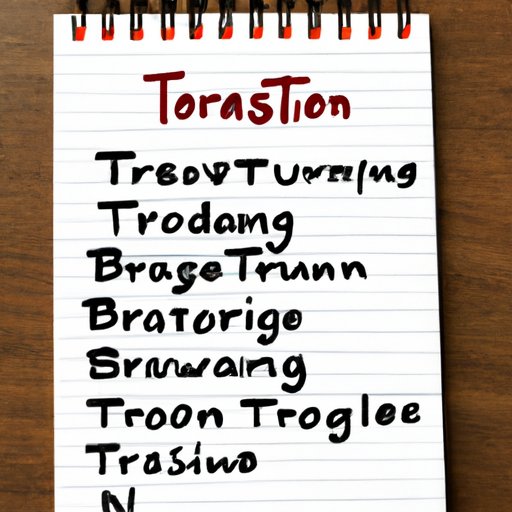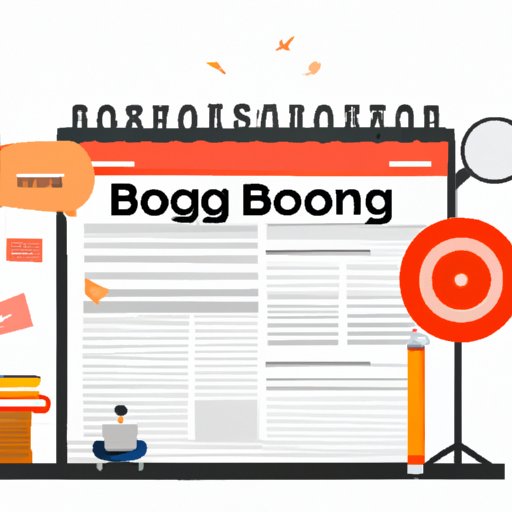Introduction
Blogging has become an increasingly popular way to share knowledge and experiences online. Whether you’re writing about travel, lifestyle, business, or any other topic, having a blog can help you build an audience, establish yourself as an expert, and even make money. But if you’re new to blogging, it can be overwhelming trying to figure out where to start. This article will provide you with tips on how to set up a successful blog and make sure that people actually read it.
Choose a Blogging Platform
The first step in creating a blog is choosing a blogging platform. Popular blogging platforms include WordPress, Blogger, Squarespace, and Tumblr. Each of these platforms has its own advantages and disadvantages; for example, WordPress is a powerful platform that is great for customization, but it requires more technical know-how than some of the other options. On the other hand, Blogger is easy to use, but it isn’t as customizable as WordPress. It’s important to consider your needs when selecting a platform; if you’re just starting out, you may want to go with a simpler platform like Blogger, while if you’re looking to customize your blog, you may want to opt for WordPress.
Identify Your Target Audience
Once you’ve chosen a platform, the next step is to identify your target audience. Knowing who you’re writing for will help you determine what topics to write about and how to structure your posts. To identify your target audience, start by researching similar blogs and websites in your niche to get an idea of who their readers are. Look at the comments section to see what kind of questions people are asking or what topics they’re interested in. You can also use social media to identify your target audience; look at the people who are following similar accounts and consider what kind of content resonates with them.

Brainstorm Topics to Write About
Now that you know who you’re writing for, it’s time to come up with topics to write about. The key to successful blogging is to write about topics that your readers are interested in. To generate ideas, look at what topics are trending in your niche and think about what kind of content would be helpful to your readers. You can also use keywords to help you find topics; search for terms related to your niche to see what people are talking about.
Set a Schedule for Blog Posts
Creating a consistent posting schedule is essential for ensuring that your blog is successful. Having a schedule ensures that you’re regularly producing content and that your readers know when to expect new posts. Try to set a realistic schedule that you can stick to; if you’re just starting out, you may want to aim for one post per week. As you gain more experience, you can gradually increase the frequency of your posts.

Research Related Topics and Keywords
One of the most important aspects of blogging is search engine optimization (SEO). SEO is the process of optimizing your blog posts so that they appear higher in search engine results. To do this, it’s important to research related topics and keywords and incorporate them into your posts. There are many tools available that can help you with this process, such as Google AdWords and Google Trends. These tools can help you identify which keywords are most effective for your blog.
Create an Editorial Calendar
Creating an editorial calendar is a great way to stay organized and ensure that you’re consistently producing content. An editorial calendar is a plan that outlines all of the topics you’ll be writing about in the coming months. It can help you keep track of deadlines and make sure that you’re staying on track. You can use a spreadsheet or a tool like Trello or Asana to create an editorial calendar.
Conclusion
Creating a blog can seem intimidating, but with the right guidance, it can be a rewarding and enjoyable experience. By choosing the right blogging platform, identifying your target audience, generating topics, setting a schedule, and creating an editorial calendar, you’ll be well on your way to becoming a successful blogger.
(Note: Is this article not meeting your expectations? Do you have knowledge or insights to share? Unlock new opportunities and expand your reach by joining our authors team. Click Registration to join us and share your expertise with our readers.)
